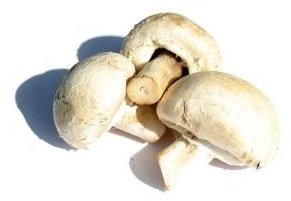Nutrition in Mushrooms: Comprehensive Guide Including Calories, Fat, Carbs, Protein, Vitamins & Minerals
Introduction
We may be familiar with mushrooms in high calorie recipes like creamy mushroom soup, beef bourguignon, or chicken Marsala. However, mushrooms on their own are an incredible nutritional value, packing a surprising amount of fiber, vitamins and minerals in a tiny calorie package — and all with no fat, cholesterol or sodium, to boot. Read on to learn more about the amazing amounts of nutrition in mushrooms.
All nutritional data in this article is based upon a one-cup, 70-gram serving of white button mushrooms.
Image credit: dziegener, https://www.sxc.hu/photo/143350
Calories
Mushrooms are a very low calorie food. A 70-gram serving of mushrooms has only 15 calories. That is about one cup of raw sliced mushrooms.
Fat
Mushrooms have zero fat or saturated fat. Not surprisingly, they are considered a low in saturated fat food.
Carbohydrates
One serving of mushrooms has two grams of carbohydrates. One gram of that is dietary fiber, and the other one gram is sugars.
Fiber
Mushrooms are a good source of dietary fiber, with one gram per 70-gram serving.
Protein
While 70 grams of mushrooms with two grams of protein may not appear to be high at first glance, mushrooms are actually a good source of protein. That is because there is a high amount of protein relative to the total weight of the mushrooms.
Vitamins
Mushrooms are a very good nutrient source of vitamin D, thiamin, niacin, vitamin B5 (pantothenic acid), riboflavin, and vitamin B6. Per 70-gram serving, mushrooms contain three percent of the Daily Value (DV) for vitamin D, four percent of the DV for thiamin, and a whooping 13 percent of the DV for niacin. Mushrooms also provide 10 percent of the DV for pantothenic acid, 17 percent of the DV for riboflavin, and four percent of the DV for vitamin B6.
Mushrooms are also a good source of vitamin C, with two percent of the DV per serving, and folate, with two percent of the DV per serving.
Minerals
Mushrooms may be an even better source of minerals than vitamins. The fungi is packed with beneficial mineral sources our bodies need daily.
Mushrooms are an excellent source of copper, with 11 percent of the DV per serving. They’re also a very good source of selenium (nine percent of the DV), potassium (six percent of the DV) and phosphorus (six percent of the DV).
One serving of mushrooms is a good source of iron, zinc, and manganese, delivering two percent of the DV.
Mushrooms are little nutritional powerhouses. With all the nutrition in mushrooms, everyone would do well to try to fit some into their diet regularly.
References
CDC: Fruits and Veggies Matter, https://www.fruitsandveggiesmatter.gov/month/mushroom.html
The Month of May: Mushrooms, https://www.panen.org/snap/mushrooms
